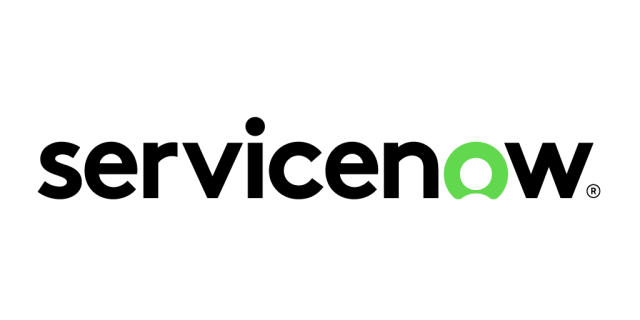Cognizant recently announced significant enhancements to its Cognizant Neuro AI platform, providing enterprises with an innovative solution for rapidly discovering, prototyping, and scaling AI use cases to improve decision-making and unlock new revenue streams.
The new release is aligned with a broader trend of global system integrators and consulting firms, like Cognizant, increasingly stepping in to help enterprises overcome the challenges of AI adoption, such as identifying high-value use cases and operationalizing AI at scale.
Background: What is Neuro AI?
Cognizant Neurois an advanced AI platform designed to help businesses rapidly discover, prototype, and scale AI use cases. It is differentiated by its ability to assist enterprises in applying AI to complex decision-making scenarios across various industries.
The platform leverages multi-agent AI systems, which allow multiple AI models to work collaboratively on intricate problems, offering greater adaptability and scalability than traditional single-agent AI systems.
Key Features of Cognizant Neuro AI
Prior to the announcements described below, Cognizant Neuro AI was known for the following features:
- LLM-powered Data Preparation: Large language models help automate and streamline the data cleaning and preparation process, reducing the time businesses take to prototype and deploy AI models.
- Evolutionary AI Models: The platform also includes models that predict outcomes and prescribe actions to meet specific business objectives. These models evolve, improving their accuracy and efficiency as more data is fed into them.
Applications of Cognizant Neuro AI
Cognizant Neuro AI is used across a variety of industries and business functions, including:
- Healthcare: For drug discovery, personalized treatment plans, and improving patient outcomes.
- Finance: For fraud detection, risk assessment, and optimizing customer retention strategies.
- Agriculture: For optimizing crop yields, managing resources, and developing more effective pesticides.
- Supply Chain Management: This is used to improve inventory management, dynamic pricing, and resource allocation.
Updates to Neuro AI
The enhanced Cognizant Neuro AI platform introduces several advanced tools designed to streamline AI deployment:
- Opportunity Finder: An LLM-powered discovery tool that helps users identify relevant AI use cases based on specific business needs.
- Model Orchestrator: A drag-and-drop interface that simplifies data preparation and the application of machine learning models, allowing users to efficiently test, train, and refine AI models.
- Multi-agent AI systems: Central to the platform, these systems manage complex decision workflows, making them more scalable and adaptable than single-agent systems.
- Pre-built configurations: Tailored for key industries, including healthcare, finance, agriculture, and general business functions such as supply chain optimization and fraud prevention.
A key feature of the updated Cognizant Neuro AI platform is its use of multi-agent AI systems. These systems, which involve multiple AI models working together to achieve a common goal, are designed to manage complex workflows and provide more scalable and adaptable solutions than single-agent systems.
Its architecture allows enterprises to apply AI to more complicated decision-making tasks, such as optimizing pricing strategies, managing supply chains, or improving fraud detection. As AI becomes more integral to business operations, multi-agent systems are expected to significantly scale AI use cases across industries.
Analysis
Cognizant is at the forefront of a growing trend where global system integrators and consulting firms are increasingly pivotal in helping enterprises adopt and scale AI. As AI’s complexity grows, particularly in multi-agent systems and decision-based AI, companies like Cognizant play a critical role in making advanced AI accessible and actionable for businesses. Cognizant demonstrates leadership in the AI consulting landscape by offering the technology and guiding businesses on identifying use cases, scaling them, and ensuring the AI solutions align with business outcomes.
Cognizant’s AI Research Lab, launched earlier this year, drives much of the platform’s innovation. The lab focuses on decision-based AI, combining generative AI, multi-agent architectures, and evolutionary AI to create sophisticated systems that support complex decision-making. With over 75 patents, the lab is pioneering the development of AI systems that go beyond prediction, enabling businesses to drive operational transformation and growth.
As enterprises increasingly rely on system integrators to bridge the gap between AI experimentation and enterprise-wide implementation, Cognizant’s platform sets a new benchmark for delivering AI-driven decision-making at scale. With its suite of AI tools and pre-configured solutions for multiple industries, Cognizant is well-positioned to meet the rising demand for operational AI solutions that deliver measurable business outcomes.
As businesses increasingly seek to integrate AI into their operations, platforms like Cognizant’s Neuro AI, Accenture’s AI Solutions, TCS’s Ignio, IBM Watson AI, and Infosys Nia offer various strengths. However, Cognizant’s emphasis on decision-based AI, its use of multi-agent systems, and its industry-specific configurations give it a unique position in the market.
For enterprises looking to rapidly identify, prototype, and scale AI use cases, Cognizant Neuro AI provides an accessible and powerful solution tailored to today’s complex business challenges.


